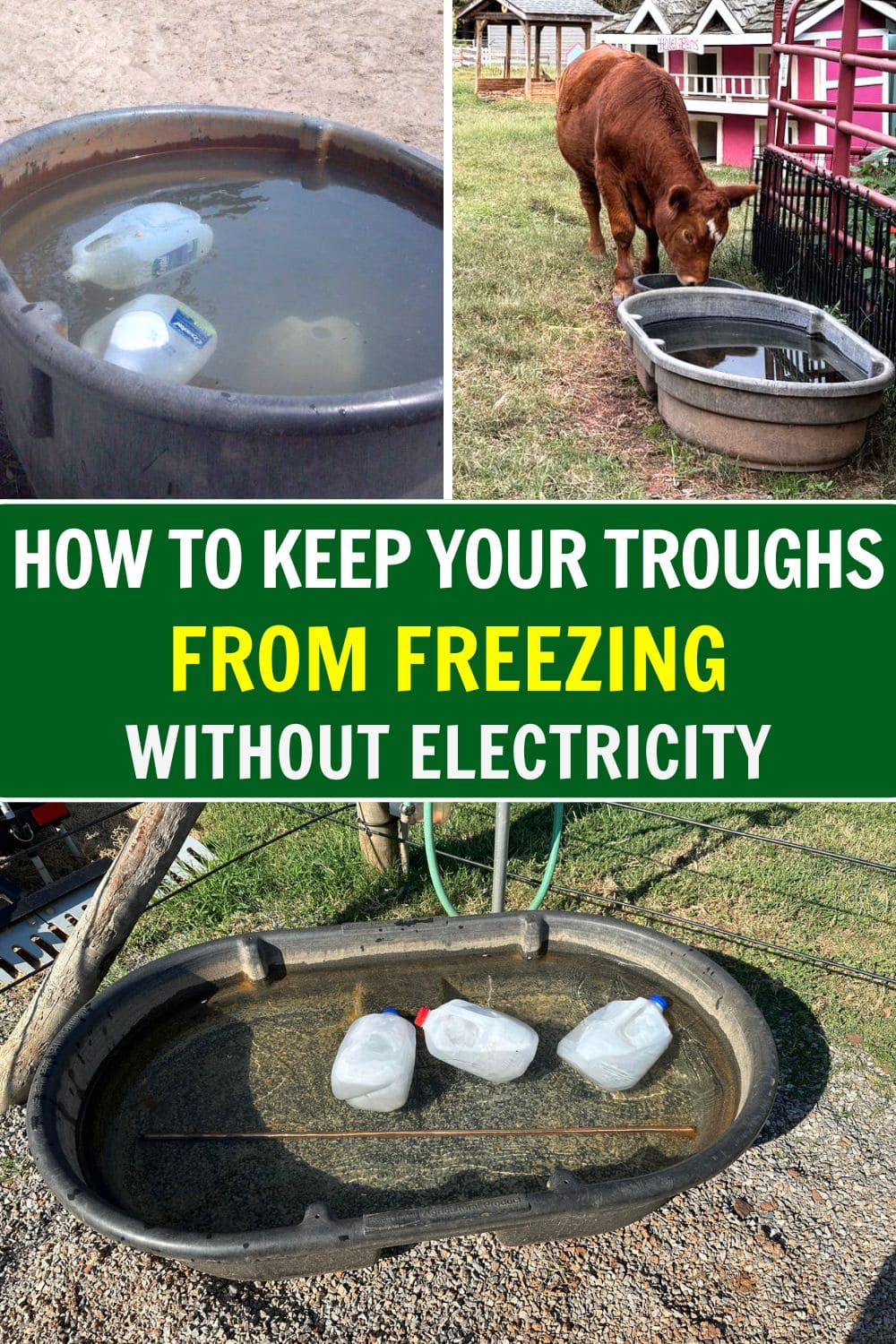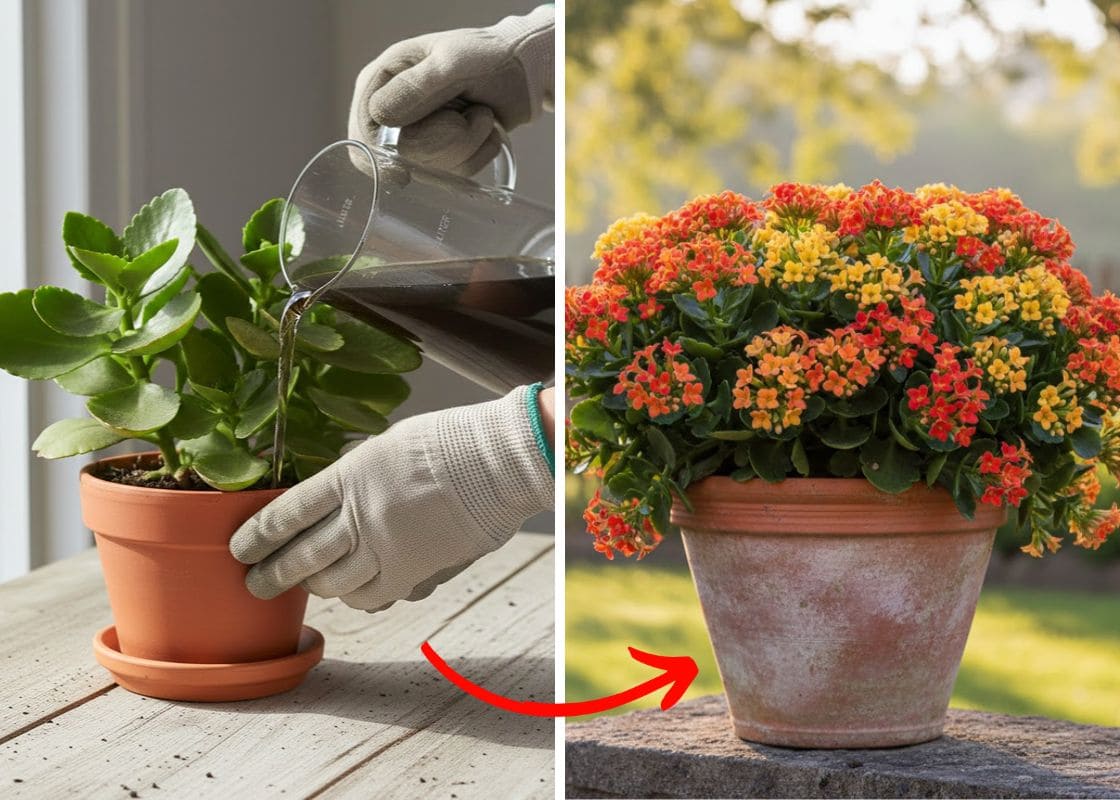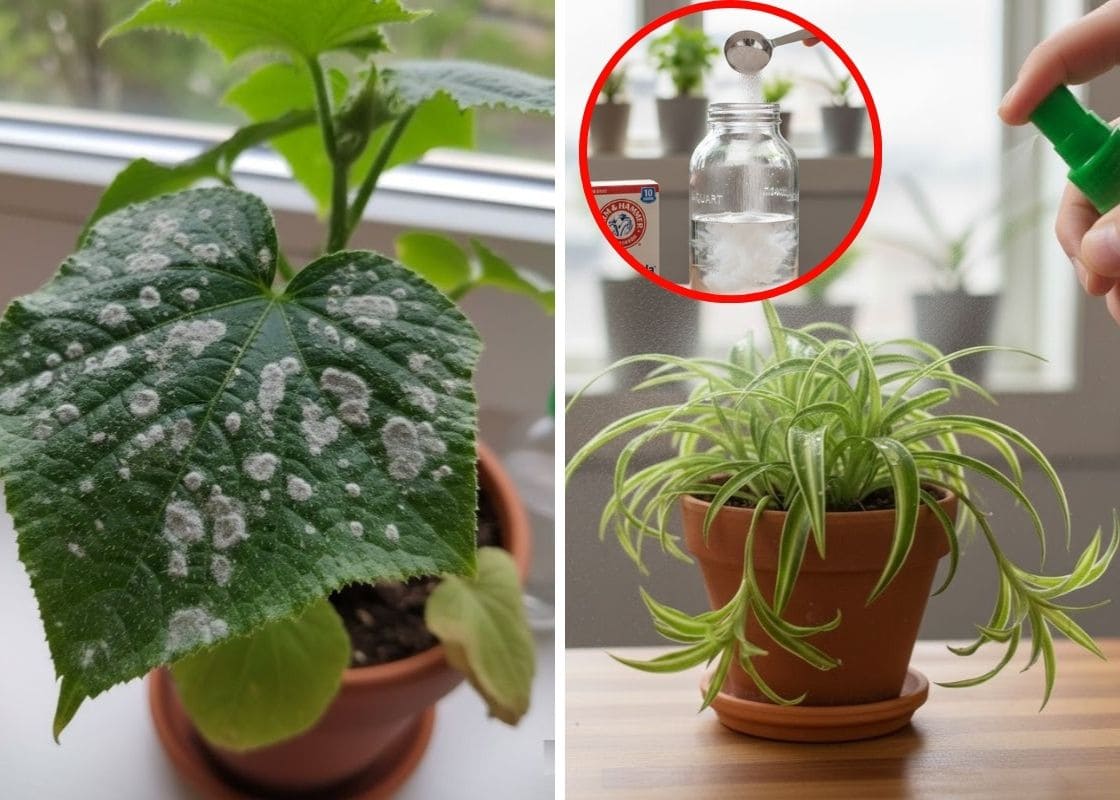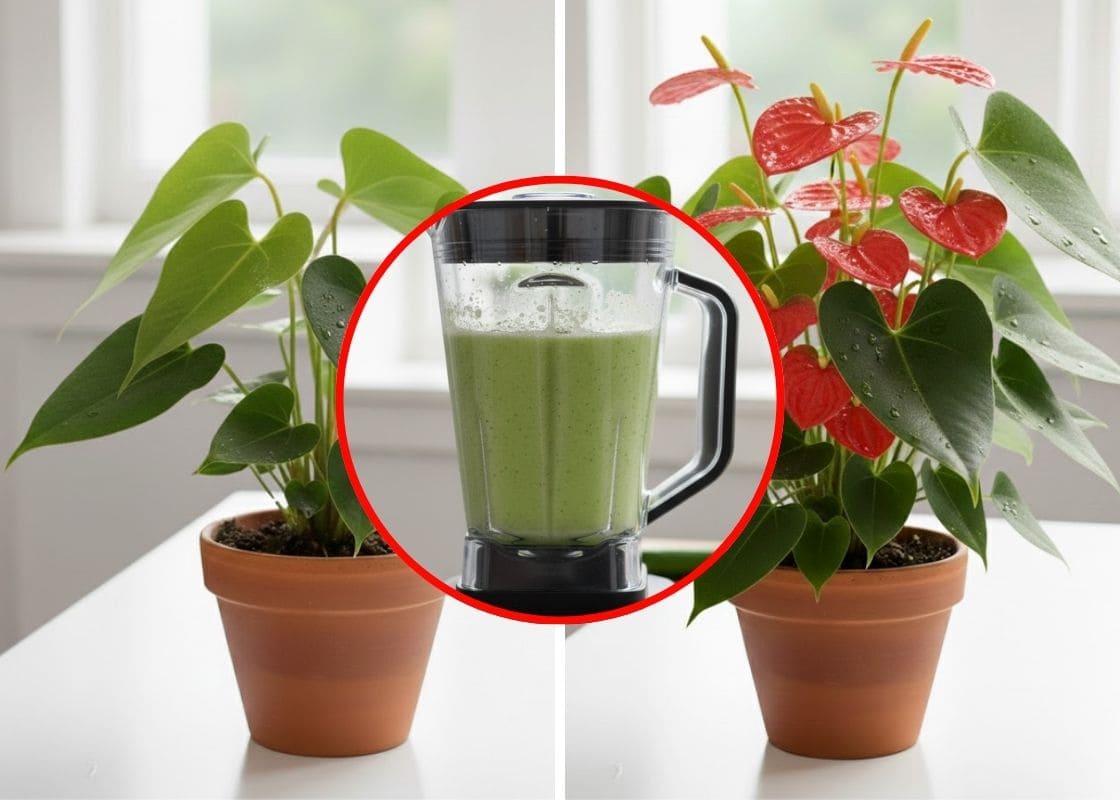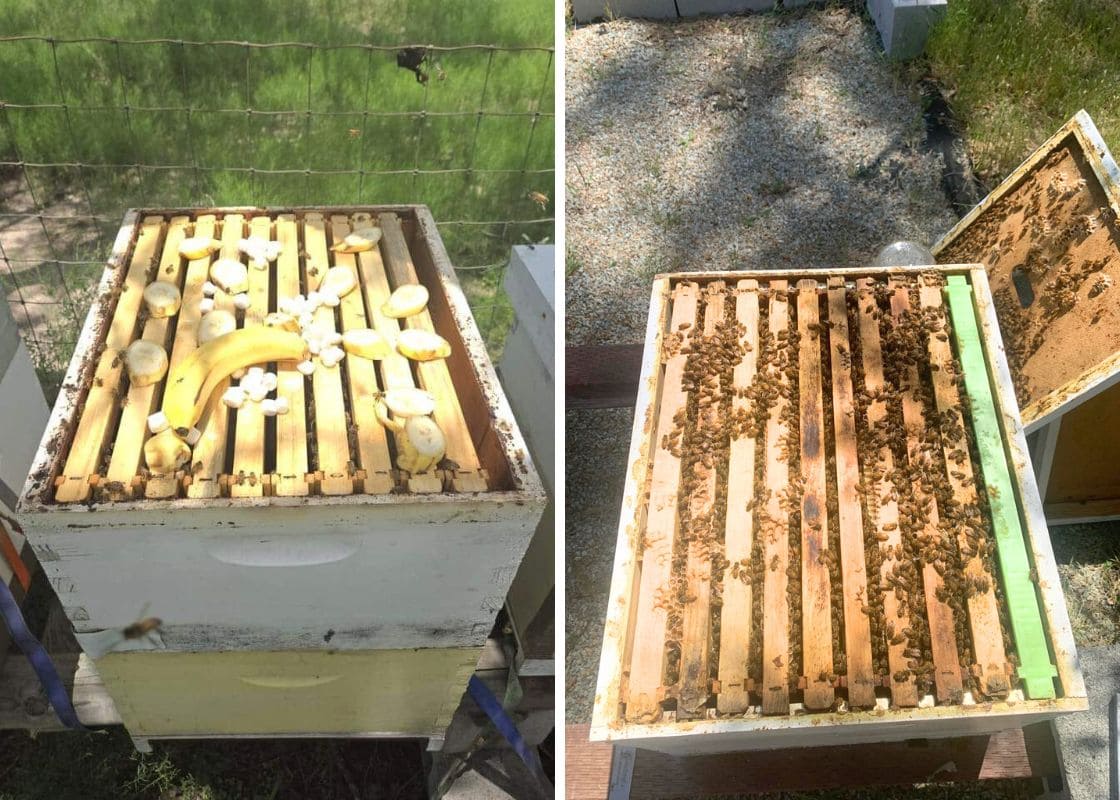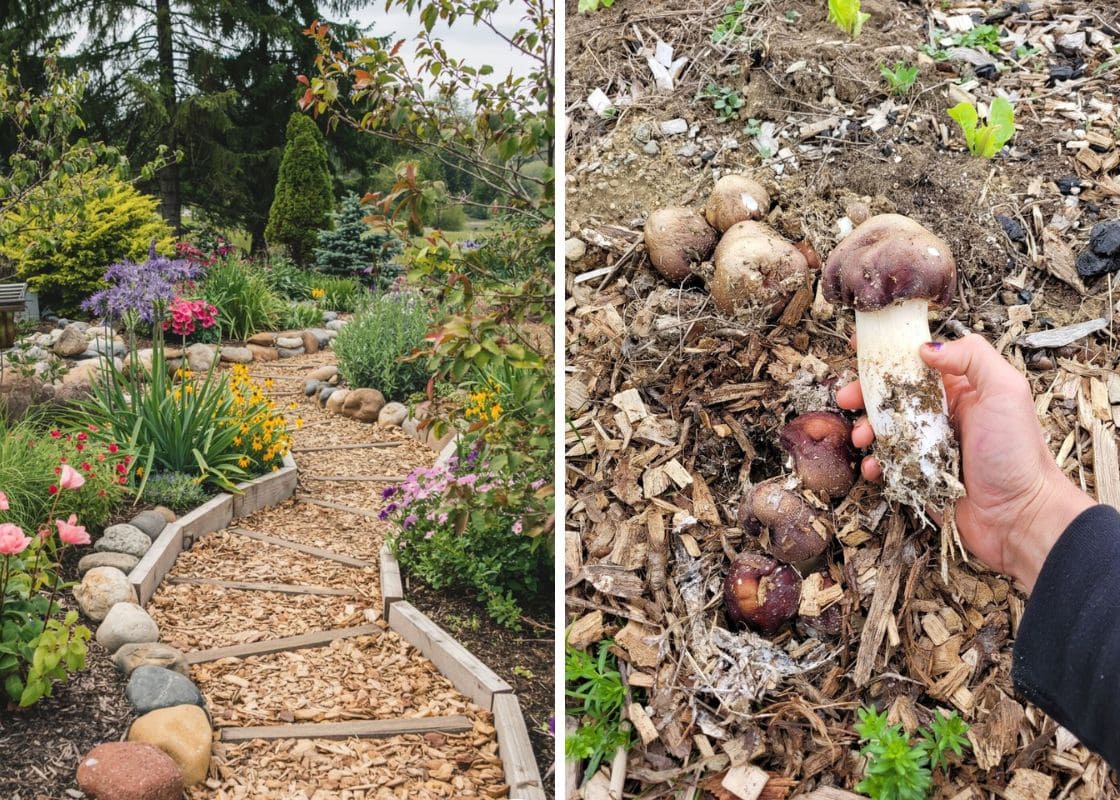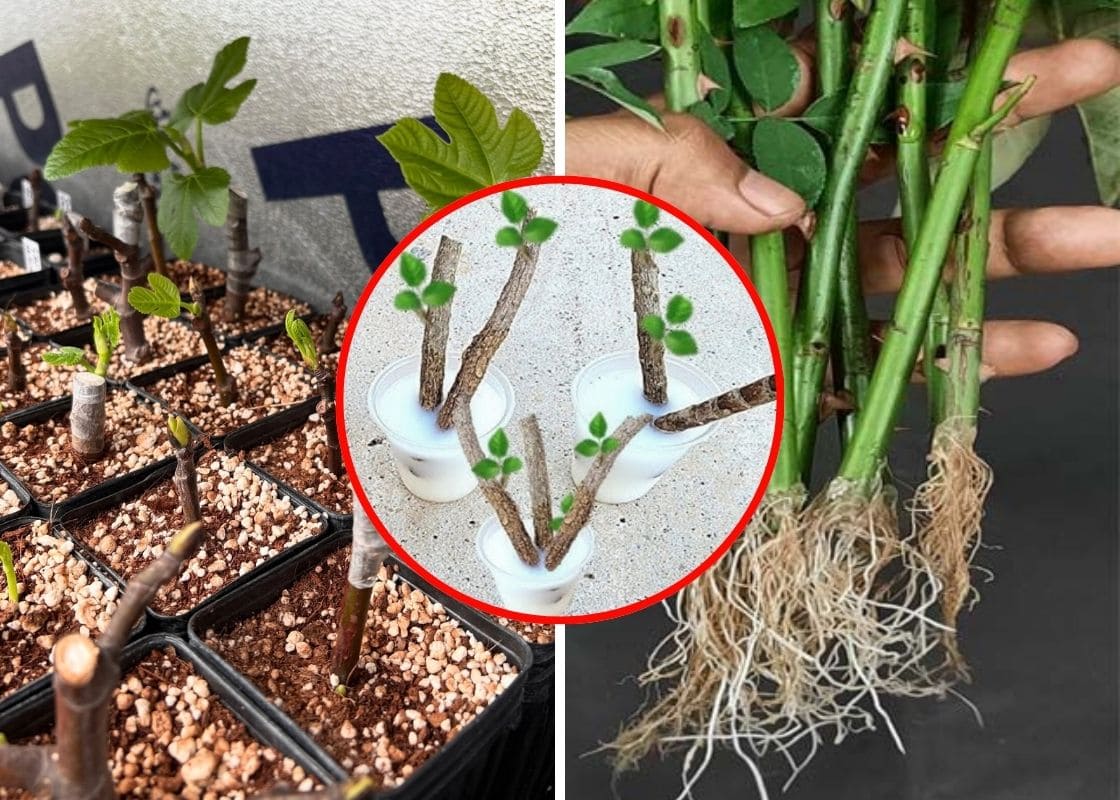If you’ve ever walked out on a frosty morning, axe in hand, ready to break through a sheet of ice just so your animals can drink, you know how exhausting winter chores can be.
Water troughs freezing solid overnight isn’t just frustrating, it can also stress your livestock and make hydration harder during the coldest months.
For many farmers and homesteaders, using electric trough heaters isn’t always an option.
Some pastures don’t have power lines nearby, and in off-grid setups, electricity is precious. Thankfully, there’s a simple, low-cost trick that has stood the test of time: saltwater jugs.
This little trick has been passed around homesteads for years, and it’s surprisingly effective at keeping troughs open, even during freezing nights.
The Science Behind the Trick
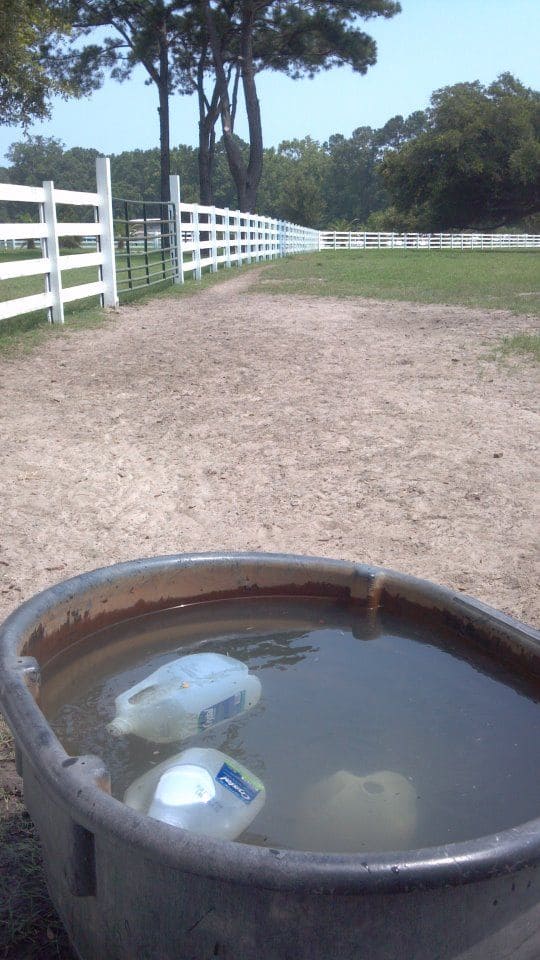
The reason this trick works is because saltwater doesn’t freeze as easily as plain water.
When you fill plastic jugs with salty water and float them in your trough, the saltwater mixture inside stays liquid even in freezing conditions.
As the jugs bob gently in the water, they create small ripples and prevent ice crystals from binding together to form a solid layer.
The movement from the jugs, combined with the saltwater’s lower freezing point, helps slow down ice formation significantly.
It’s the same principle that keeps the ocean from freezing solid, a little bit of salt changes everything.
This method doesn’t keep the water warm; it just prevents the surface from freezing over completely.
What You’ll Need
Most of what you need can be found around your home or barn:
- Empty milk jugs, water gallon containers, or oil jugs, any sturdy plastic container with a lid will do.
- Around 5 tablespoons of rock salt or kosher salt per jug.
- Clean water to fill halfway.
- Optional: a permanent marker to label them saltwater jugs so no one accidentally uses them for drinking water.
These jugs are safe to float in the trough since they stay sealed and don’t release salt into the water.
You’ll want one or two jugs for smaller troughs and up to three for large ones.
How to Make and Use Saltwater Jugs
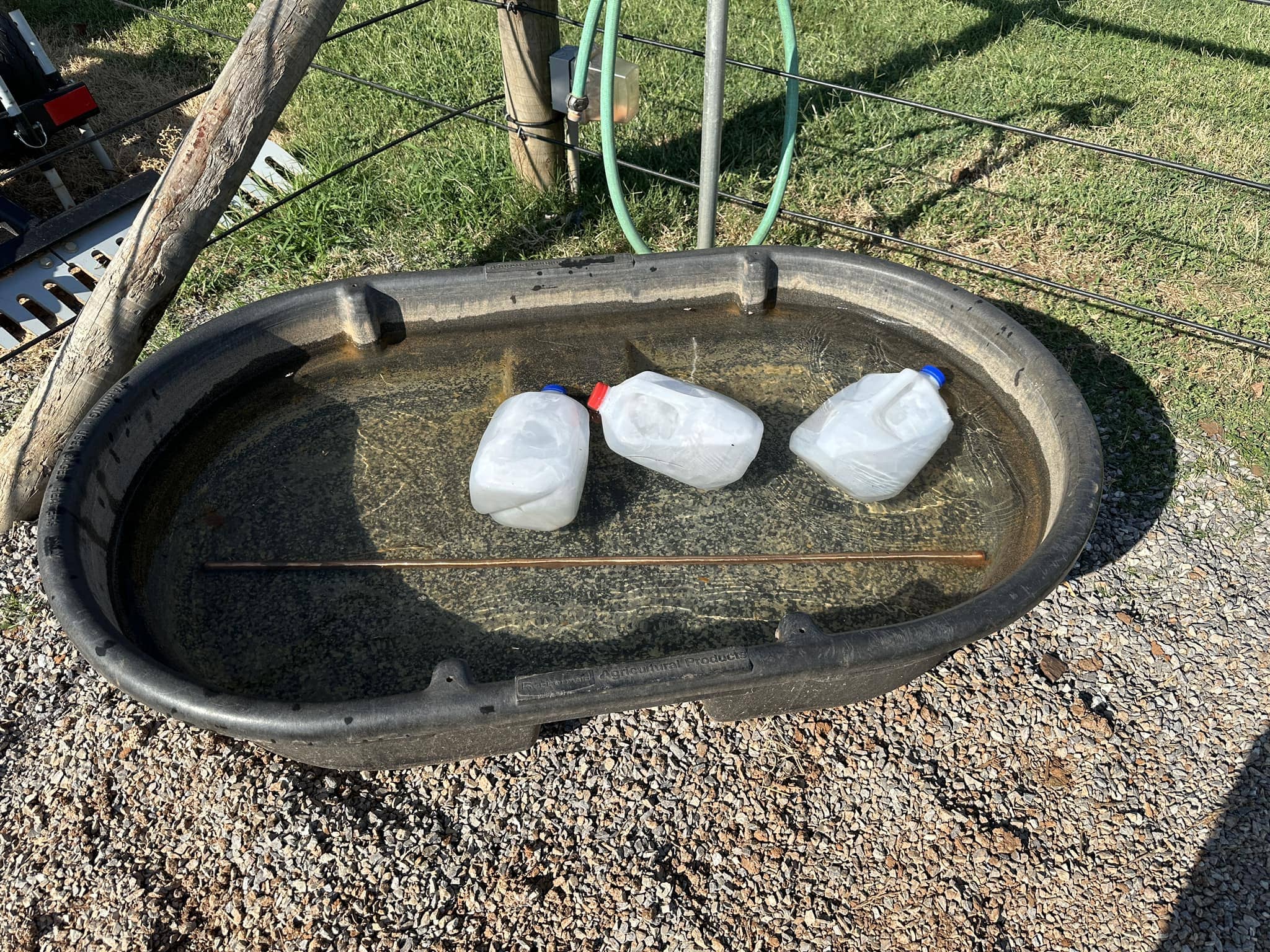
Start by cleaning the containers thoroughly to remove any milk, oil, or residue. Then fill each jug halfway with clean water and add your salt.
Give it a good shake until most of the salt dissolves, leaving some air space at the top, that extra air keeps the jug buoyant.
Screw the lids on tightly to prevent leaks. Once sealed, simply toss them into your water trough and let them float.
On windy days or when animals nudge the trough, the jugs move slightly, helping to disrupt ice formation.
You’ll notice that the water may still develop a thin film of ice overnight during extremely cold temperatures, but it will stay slushy and easy for animals to push aside.
Does It Really Work?
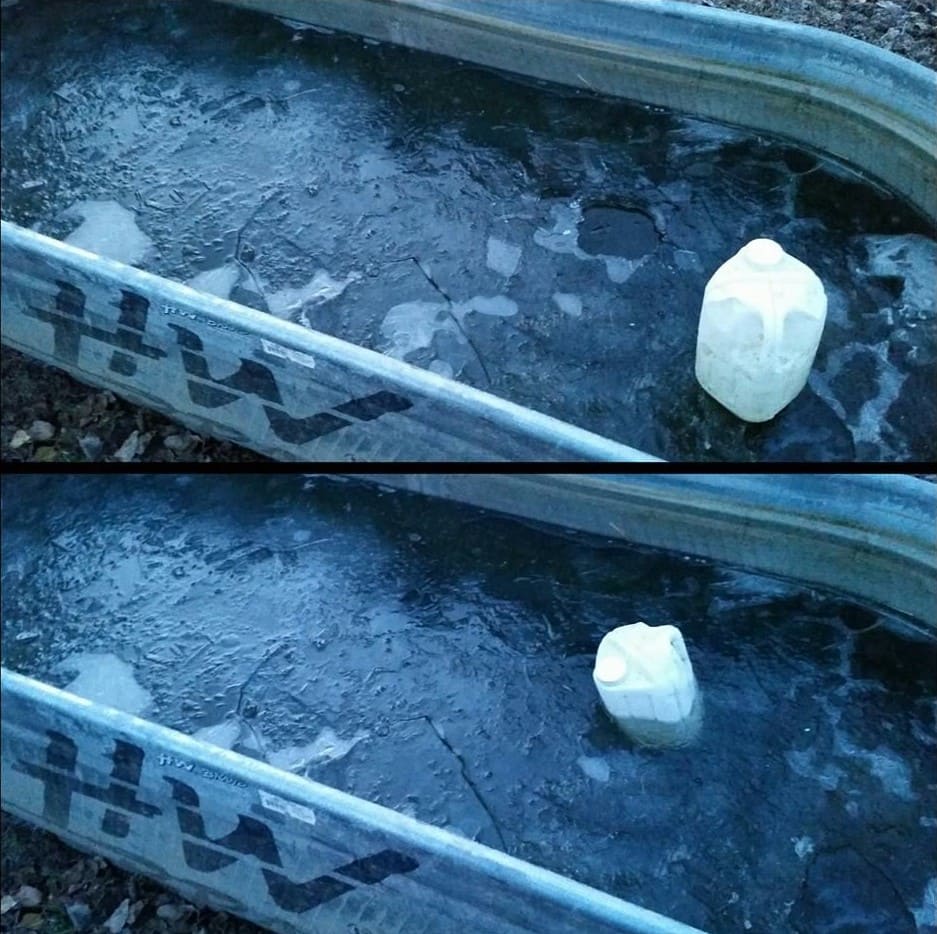
Yes and it’s been tested by countless farmers. In one experiment, five troughs were left out in freezing weather.
Three had saltwater jugs, while two didn’t.
By the next evening, the difference was clear: the troughs with jugs stayed unfrozen and usable, while the others developed a thick, solid sheet of ice that needed breaking.
This method doesn’t completely prevent freezing during prolonged extreme cold, but it significantly delays it.
For moderate winter nights, it can keep the surface open all day long. Even better, it requires no electricity, no maintenance, and no added cost.
Maintenance and Extra Tips
You don’t need to do much once your jugs are floating, but a few small habits make this hack even more effective:
- Check the seals regularly. Cracked lids or punctured jugs can leak saltwater, which you don’t want mixing with drinking water.
- Top off the water daily. A small amount of fresh warm water helps regulate the temperature and keep the ice thin.
- Position the trough smartly. Place it in partial sun or shield it from the wind to slow freezing.
- Use large jugs for big troughs. The more surface area they cover, the better the movement effect.
If temperatures dip extremely low for days on end, this method won’t keep everything totally ice-free, but it will delay freezing long enough to make daily chores easier.
Why This Hack Is Worth Trying
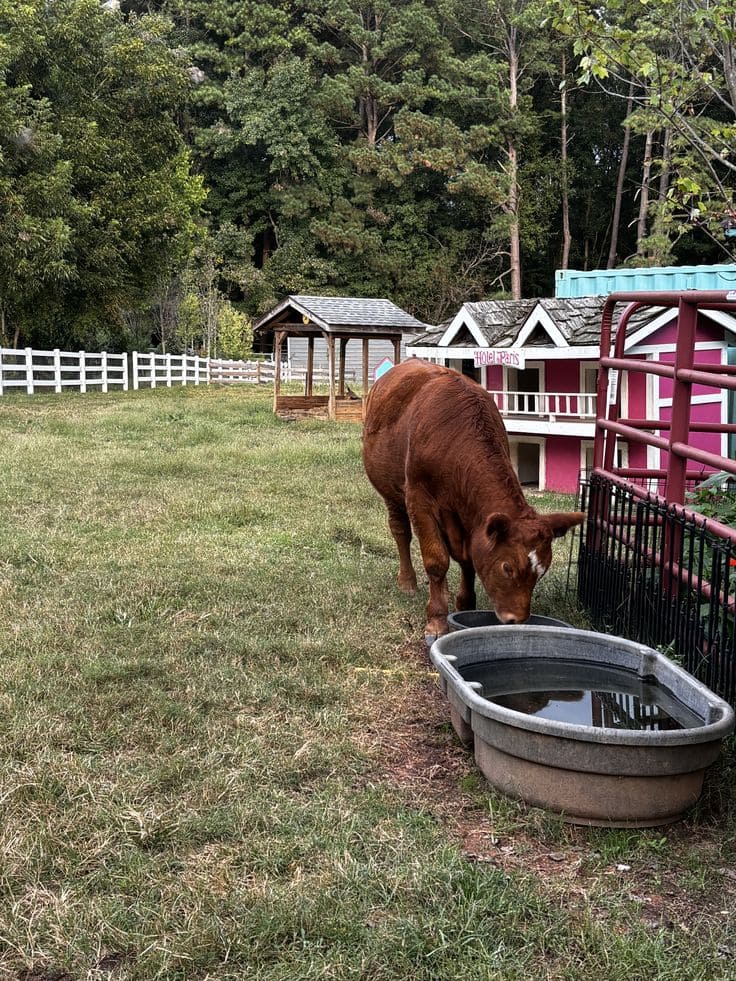
There’s something deeply satisfying about using a simple, natural trick that works better than expensive equipment.
Saltwater jugs are not only efficient, they’re environmentally friendly. You’re recycling plastic containers, cutting down on electricity, and saving both time and money.
More importantly, your animals stay hydrated.
Dehydration is a common but overlooked winter issue, even livestock can drink less when water is icy or hard to access.
This small setup ensures that they always have fresh, drinkable water available, which supports digestion, milk production, and overall health during cold months.
Mistakes to Avoid
While this method is simple, a few small mistakes can make it less effective. Some farmers fill their jugs too full, leaving no room for movement.
The key is balance: half water, half air, so the jug stays buoyant and flexible.
If you overfill it, the jug becomes heavy and sinks, reducing its motion and efficiency.
Another common mistake is using table salt instead of coarse salt.
Fine salt dissolves too quickly, changing the water’s balance and freezing resistance over time. Rock salt or kosher salt lasts longer and works better.
Be careful not to crowd your trough with too many jugs.
Animals need space to drink comfortably, and too many floating containers can discourage them from approaching the water.
Also, make sure the caps are sealed tightly. Even a tiny leak can let saltwater seep into the trough, which could make the water taste unpleasant or unsafe.
Lastly, avoid assuming this trick will work forever without attention.
Check occasionally, especially after strong winds or freezing rain, to ensure everything is in place and working as expected.
